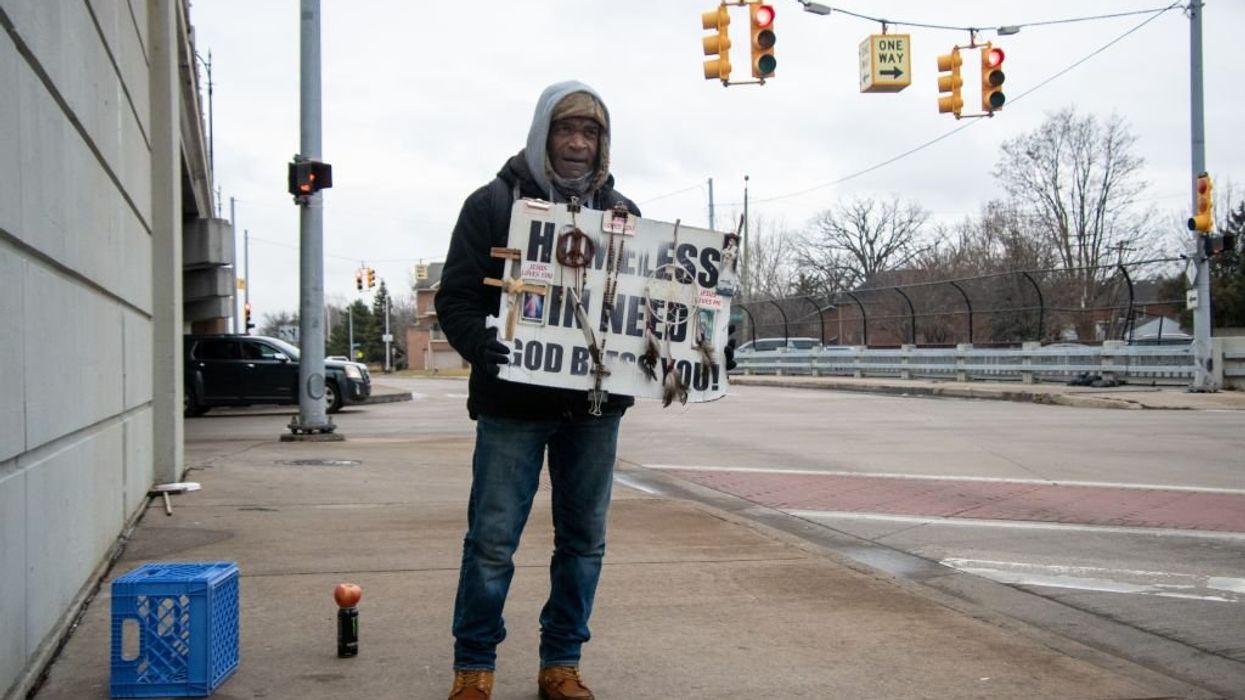© 2024 Blaze Media LLC. All rights reserved.
PASADENA, Calif. (AP) — The rapidly replicated false report that Rep. Gabrielle Giffords had died after being shot in the head provided media outlets another lesson this weekend in the danger of leaping to conclusions.
NPR News' executive editor apologized Sunday to Giffords' family for the false report. That story came only an hour after NPR scored a significant scoop in reporting on Saturday's shooting in Tucson, Ariz. itself.
Media organizations also faced scrutiny for how they speculated on potential causes of a gunman's rampage in a shopping center where Giffords was meeting with constituents.
National Public Radio had reported on its 2 p.m. ET newscast — and in subsequent e-mail alerts to subscribers — that Giffords had died from her injury when, in fact, she was still in surgery. Dick Meyer, executive editor of NPR News, said the information came from two different government sources, including one in the Pima County Sheriff's Department.
"This was a serious and grave error," Meyers said in a note posted on NPR's website Sunday. He said that on behalf of NPR News, "I apologize for this mistake to the family of Rep. Giffords, to the families of everyone affected by the shootings, to our listeners and to our readers."
Mistakes in the rush to gather facts in a fast-breaking story aren't new. Yet in today's media environment, amplified by the speed and viral nature of social media, they're likely to spread farther and faster than ever before.
Within a half hour, all three cable news networks had bannered the headline of Giffords' supposed death. Reuters cited NPR in a story that appeared on the front of the Yahoo! News site. CBS broke into the coverage of a women's college basketball game to report that Giffords had died. NBC had a similar special report.
ABC was more cautious about 15 minutes after the others, noting reports that she had died yet quoting her communications director that she was still alive. The Associated Press, unsatisfied that the reports of Giffords' death were accurate, did not make a mistaken report.
Ironically, NPR's own work earlier in the day may have given its report more weight than it deserved. NPR appeared to be the first national news outlet to report on the shooting after the wife of a former Arizona Public Radio employee witnessed the scene, and had her husband call in the news to public radio.
Fox News Channel's Bret Baier said on the air at 2:18 p.m. that NPR and one of his own sources reported that Giffords was dead. Fox's screen carried the headline: "AZ Rep. Giffords Has Died After Being Shot in the Head." Another Fox reporter said that the shooting suspect had himself been shot before being taken into custody, and there's been no evidence of that happening.
CNN went with NPR's report, and Martin Savidge quickly added that CNN had confirmed the "death" as well.
Former CBS News anchor Dan Rather said that if he were covering the story in the 1970s and 1980s, he would not likely have gone with the NPR report. But if he were in the anchor chair in 2011, he probably would have.
"The pressure is immediate and almost crushing on you and your news organization to match that," he said. "Mostly what you hear are sets all over the world going to your competition and computers, handheld or otherwise, going to a different site."
NPR's reputation as a news organization would carry weight, particularly since television news organization knew NPR was more likely to have people close to the scene.
He recalled that following the assassination attempt on President Ronald Reagan in 1981, there were reports — even from the White House — that press secretary James Brady had died after being shot in the head. Yet CBS reporter Phil Jones urged restraint, saying he had other sources that didn't trust that report, and CBS held back, he said.
Now the reporting ranks have been thinned to the point that many news organizations are, in effect, relying on each other.
"Most news sites, whether they be on the Internet, television, radio or print, have been hollowed out to the point where they are news packagers and not news gatherers," Rather said.
Paul Levinson, chairman of the communications and media studies department at Fordham University, was more forgiving and noted that the erroneous reports on Giffords' death were quickly updated.
"We can't get away from the fact that reporters are human beings," Levinson said. "They do their best. There will be errors at institutions like this."
Commentators were quick to weigh in. MSNBC's Keith Olbermann said in an editorial late Saturday that politicians and talk show personalities — himself included — needed to swear off any kind of violent imagery so as not to incite anybody into acts like the Giffords shooting. Those who don't, he said, should be judged silently complicit of the act.
News organizations were closely watched in how they offered context to the events. The conservative watchdog publication Newsbusters, for example, faulted the AP for noting that Giffords' district was targeted by supporters of Sarah Palin while not discussing left-wing commentators' criticism of Democrats who did not support Nancy Pelosi for minority leader.
Want to leave a tip?
We answer to you. Help keep our content free of advertisers and big tech censorship by leaving a tip today.
Want to join the conversation?
Already a subscriber?
more stories
Sign up for the Blaze newsletter
By signing up, you agree to our Privacy Policy and Terms of Use, and agree to receive content that may sometimes include advertisements. You may opt out at any time.
© 2024 Blaze Media LLC. All rights reserved.
Get the stories that matter most delivered directly to your inbox.
By signing up, you agree to our Privacy Policy and Terms of Use, and agree to receive content that may sometimes include advertisements. You may opt out at any time.


